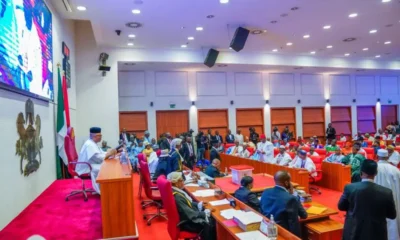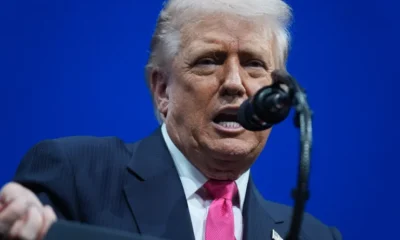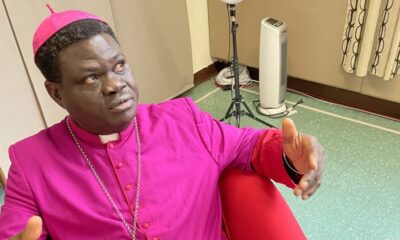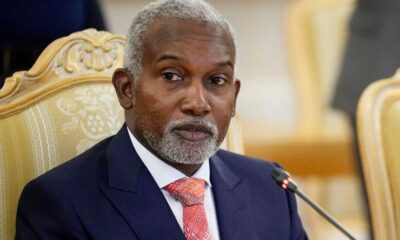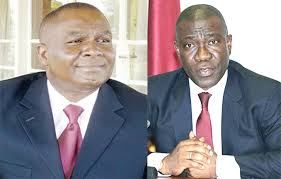Breaking News
Senate Forms 12-Member Panel Over US Claim of Christian Genocide In Nigeria
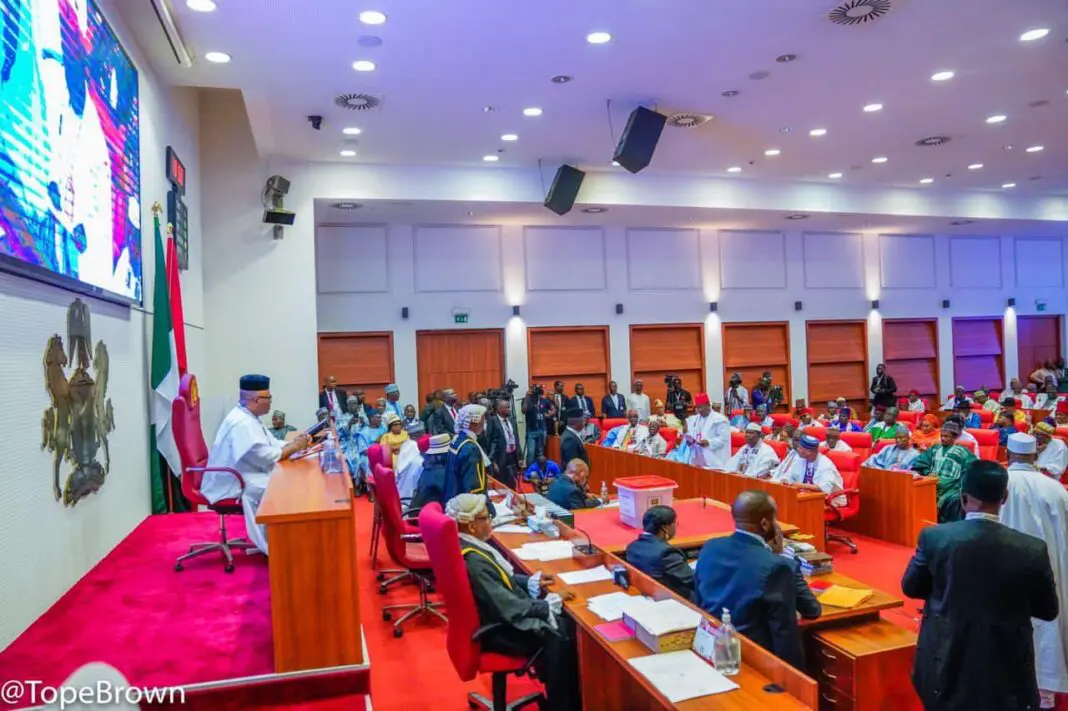
The Senate, on Tuesday, constituted a 12-member ad hoc committee to advise the National Assembly on how best to respond to mounting international concerns over alleged state-backed persecution of Christians in Nigeria.
The move followed deliberations during a closed-door session of the upper chamber, where senators discussed recent claims by the United States Government suggesting possible acts of genocide targeting Christians in parts of the country.
The development comes amid what lawmakers described as “growing diplomatic scrutiny” and fears that the allegations could tarnish Nigeria’s international image and worsen interfaith tensions if left unaddressed.
The ad hoc committee is chaired by Senate leaders drawn from different regions and political parties, including Victor Umeh, Yemi Adaramodu, Aniekan Bassey, Niyi Adegbonmire, Abdul Ningi, Titus Zam, Tony Nwoye, Tahir Munguno, and Asuquo Ekpenyong, among others.
The committee’s primary mandate, according to the Senate, is to draft a comprehensive position paper that will serve as the legislature’s official response to the allegations and guide the government’s engagement with international partners on the matter.
Announcing the composition of the committee, the President of the Senate, Godswill Akpabio, said the document must be “factual, verifiable, and backed by credible statistics” to effectively communicate Nigeria’s realities.
He explained that the Senate’s intervention aims to clarify misconceptions and ensure that Nigeria’s security challenges are not misrepresented as religious persecution.
Lawmakers move to engage US Congress
Earlier in the plenary, the Senate resolved to open direct dialogue with the United States Congress to address and counter what it described as “misleading narratives” portraying Nigeria’s security crisis as a systematic attack against Christians.
The resolution followed a motion moved by Senator Ali Ndume (APC, Borno South), who drew attention to the potential diplomatic and economic consequences of the allegations.
Ndume warned that allowing such claims to go unchallenged could undermine Nigeria’s counterterrorism cooperation with global partners.
He said, “Nigeria’s fight against terrorism has been broad-based and inclusive. It is not a religious war. These narratives are damaging and must be corrected through constructive engagement.”
During the debate, lawmakers expressed concern that the genocide narrative—though rooted in genuine humanitarian concern—was often fuelled by inaccurate reports and biased interpretations of Nigeria’s complex security challenges.
Senate President Akpabio emphasised the need for direct diplomatic engagement rather than public condemnation.
“There are misconceptions that need to be corrected,” Akpabio said. “We are dealing with a complex terrorist threat, and it’s important that our counterparts in the US understand that the violence affects both Christians and Muslims.”
He proposed that a smaller, high-level delegation from the National Assembly travel to Washington D.C. for private consultations with American lawmakers to present verified data and clarify the country’s position.
Senator Jimoh Ibrahim (APC, Ondo South) called for Nigeria’s counterterrorism response to be guided by research and intelligence-based strategies rather than reactive policies.
He stressed that proper data collection and public communication were essential to changing how the world perceives the security situation in Nigeria.
Lawmakers also noted that terrorism in Nigeria had evolved beyond religious extremism and now includes banditry, political violence, and economic sabotage, which require multi-dimensional solutions.
The Senate’s resolution underscores growing concern over international reports that have linked Nigeria’s security challenges to religious persecution.
Human rights organisations and foreign policy analysts have repeatedly accused the Nigerian government of failing to protect minority Christian communities in the North, a claim the government has consistently denied.
The committee is expected to submit its report and recommendations within a few weeks, after which the Senate will forward a formal position paper to both the Executive arm of government and international stakeholders.

